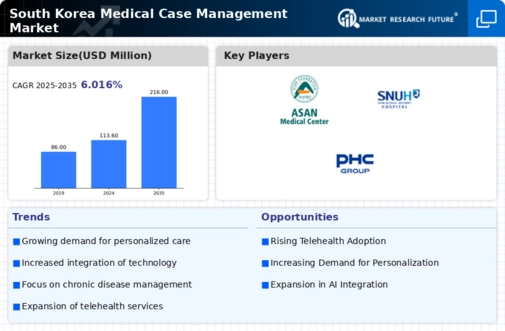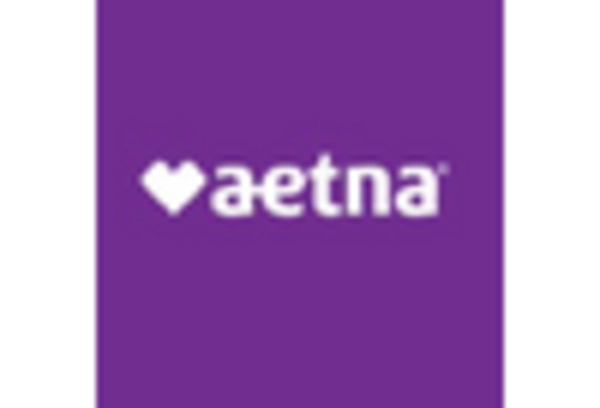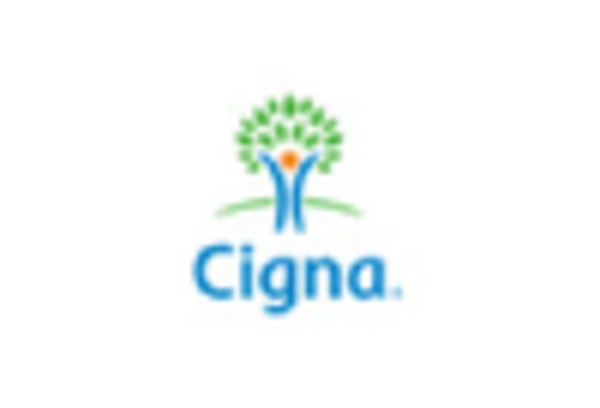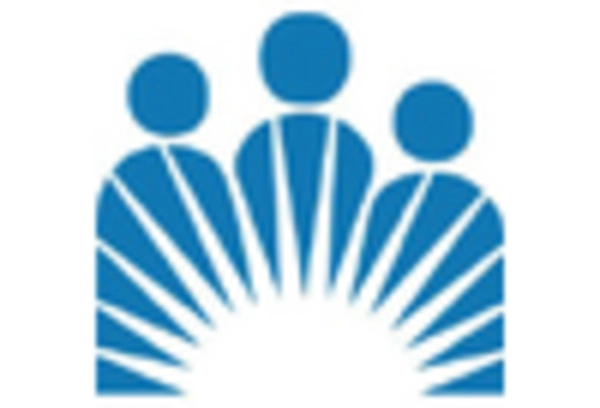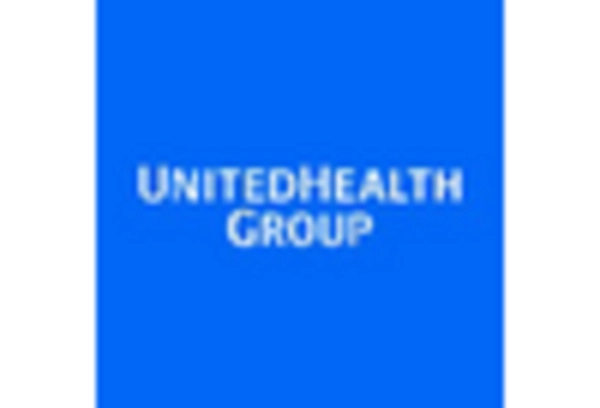Rising Demand for Personalized Healthcare
The medical case-management market in South Korea is experiencing a notable increase in demand for personalized healthcare solutions. This trend is driven by a growing awareness among patients regarding their health needs and preferences. As individuals seek tailored treatment plans, case managers are required to develop customized strategies that align with patient-specific conditions. The market is projected to grow at a CAGR of approximately 8.5% over the next five years, reflecting the increasing emphasis on individualized care. This shift towards personalization necessitates enhanced communication and coordination among healthcare providers, which in turn fuels the growth of the medical case-management market.
Growing Focus on Preventive Care Strategies
There is a discernible shift towards preventive care strategies within the medical case-management market in South Korea. Healthcare providers are increasingly recognizing the importance of preventing diseases rather than solely treating them. This proactive approach is likely to lead to a reduction in healthcare costs and improved patient outcomes. As a result, case managers are tasked with developing comprehensive preventive care plans that address risk factors and promote healthy lifestyles. The emphasis on prevention is expected to drive market growth, with estimates suggesting a potential increase in preventive care initiatives by 20% over the next few years.
Aging Population and Increased Healthcare Needs
South Korea's demographic landscape is shifting, with a significant rise in the aging population. By 2025, it is estimated that over 20% of the population will be aged 65 and older. This demographic change is likely to escalate the demand for healthcare services, particularly in the realm of chronic disease management. As older adults often require more complex care coordination, the medical case-management market is poised to expand to meet these needs. The increasing prevalence of age-related health issues necessitates a robust case-management framework to ensure effective treatment and support, thereby driving market growth.
Government Support for Healthcare Infrastructure
The South Korean government is actively investing in healthcare infrastructure, which is positively impacting the medical case-management market. Initiatives aimed at improving healthcare accessibility and quality are being implemented, including funding for case management programs. The government has allocated approximately $1 billion to enhance healthcare services, which includes support for case management systems. This financial backing is expected to bolster the capabilities of healthcare providers, enabling them to deliver more effective case management services. As a result, the market is likely to benefit from increased resources and improved service delivery.
Technological Advancements in Healthcare Delivery
The integration of advanced technologies in healthcare delivery is transforming the medical case-management market in South Korea. Innovations such as telemedicine, electronic health records, and data analytics are enhancing the efficiency and effectiveness of case management processes. These technologies facilitate better communication between patients and healthcare providers, leading to improved health outcomes. The market is expected to witness a surge in investment in digital health solutions, with projections indicating a potential increase of 15% in technology adoption rates by 2026. This technological evolution is likely to streamline case management operations and enhance patient engagement.


